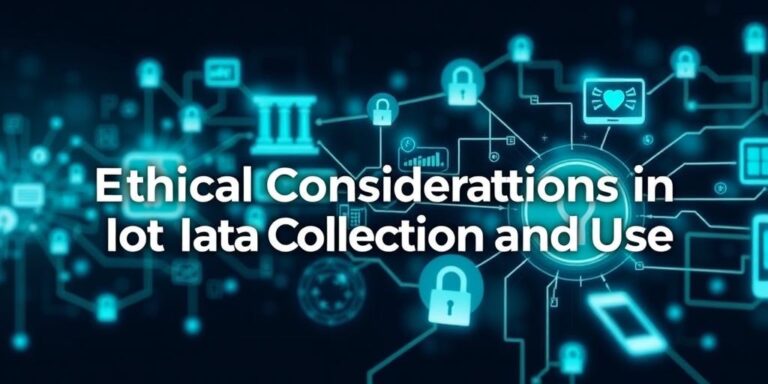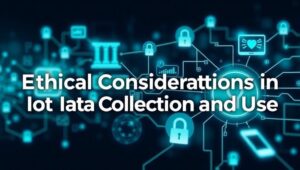Ethical Considerations in IoT Data Collection and Use (2026)
The Internet of Things (IoT) has woven itself into the fabric of our daily lives. From smart homes to connected cars, IoT devices generate vast amounts of data, offering unprecedented opportunities for innovation and efficiency. However, this data deluge also raises significant ethical concerns that must be addressed to ensure responsible and beneficial IoT deployment.
Data Privacy: A Paramount Concern
One of the most pressing ethical considerations is data privacy. IoT devices often collect personal information without explicit user consent or awareness. This data can include sensitive details such as location, health metrics, and personal habits. The potential for misuse or unauthorized access is substantial, leading to privacy violations and potential harm.
Key Considerations:
- Transparency: Clearly inform users about what data is being collected, how it is being used, and with whom it is being shared.
- Consent: Obtain explicit and informed consent from users before collecting their data.
- Data Minimization: Collect only the data that is strictly necessary for the intended purpose.
- Security: Implement robust security measures to protect data from unauthorized access and breaches.
Data Security: Protecting Against Cyber Threats
The interconnected nature of IoT devices makes them vulnerable to cyberattacks. A compromised IoT device can serve as an entry point for malicious actors to access sensitive data or disrupt critical infrastructure. Ensuring data security is essential to maintain trust and prevent potential harm.
Key Considerations:
- Device Security: Implement security protocols on IoT devices to prevent unauthorized access and control.
- Network Security: Secure the networks that connect IoT devices to prevent data breaches and cyberattacks.
- Regular Updates: Provide regular security updates to address vulnerabilities and protect against emerging threats.
Algorithmic Bias: Ensuring Fairness and Equity
IoT data is often used to train machine learning algorithms that make decisions affecting individuals and communities. If the data used to train these algorithms is biased, the resulting decisions can perpetuate or exacerbate existing inequalities. Ensuring fairness and equity in IoT data analysis is crucial to avoid discriminatory outcomes.
Key Considerations:
- Data Diversity: Use diverse datasets to train machine learning algorithms to mitigate bias.
- Bias Detection: Implement methods to detect and mitigate bias in algorithms and data.
- Transparency: Provide transparency about how algorithms are used and the factors that influence their decisions.
Social Justice and Equity: Bridging the Digital Divide
The benefits of IoT technology may not be evenly distributed across society. Marginalized communities may lack access to IoT devices or the digital infrastructure needed to participate in the IoT ecosystem. Addressing social justice and equity concerns is essential to ensure that everyone can benefit from IoT technology.
Key Considerations:
- Affordability: Make IoT devices and services affordable for low-income individuals and communities.
- Digital Literacy: Provide digital literacy training to help people use IoT technology effectively and safely.
- Accessibility: Ensure that IoT devices and services are accessible to people with disabilities.
Environmental Impact: Promoting Sustainability
The production, use, and disposal of IoT devices can have significant environmental impacts. From resource depletion to electronic waste, IoT technology contributes to environmental degradation. Promoting sustainability in the IoT ecosystem is essential to minimize its environmental footprint.
Key Considerations:
- Energy Efficiency: Design IoT devices to be energy-efficient and minimize energy consumption.
- Sustainable Materials: Use sustainable materials in the production of IoT devices.
- Responsible Disposal: Implement responsible disposal and recycling programs for IoT devices.
The Path Forward
As IoT technology continues to evolve, it is crucial to address these ethical considerations proactively. By prioritizing data privacy, security, fairness, and sustainability, we can ensure that IoT technology is used responsibly and benefits all of humanity. Collaboration between policymakers, industry leaders, and the public is essential to create a future where IoT technology empowers individuals and communities while upholding fundamental ethical principles.




